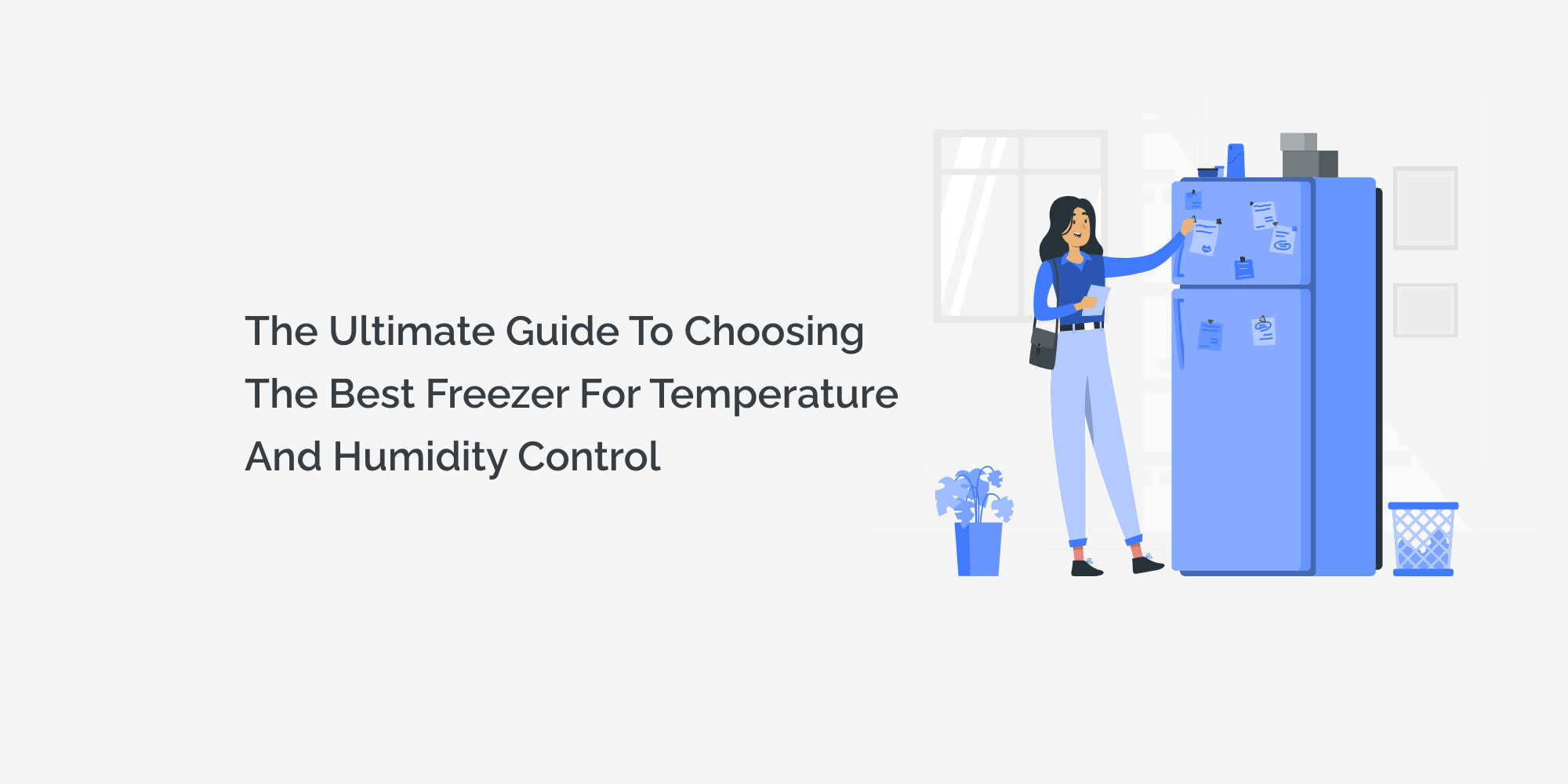Choosing the right freezer for temperature and humidity control is crucial for various industries and applications, including medical and scientific research, food storage, and pharmaceuticals. In addition, freezers play a critical role in preserving and protecting sensitive items, maintaining their quality and integrity. However, with the wide range of available options, selecting the best freezer can take time and effort. In this comprehensive guide, we will explore the key factors to consider when choosing a freezer, including temperature range, humidity control, size, energy efficiency, and unique features. With this knowledge, you can make an informed decision and find the perfect freezer to meet your needs.
Determine Your Temperature Requirements
The first step in choosing a freezer is determining your temperature requirements. Different applications require specific temperature ranges. For example, medical and laboratory applications often require ultra-low temperatures, while food storage typically requires temperatures below freezing. Consider the temperature range needed for your specific application to ensure the freezer can achieve and maintain the desired temperature consistently.
Evaluate Humidity Control Features
In specific applications, maintaining precise humidity levels is crucial. For instance, humidity control is essential in research labs or pharmaceutical storage to preserve the integrity and stability of samples or medications. Therefore, look for freezers with built-in humidity control mechanisms, such as humidity sensors or water reservoirs. These features allow you to adjust and maintain the desired humidity level within the freezer, ensuring optimal storage conditions for sensitive materials.
Assess the Size and Capacity
Consider the size and capacity of the freezer based on your storage needs. Determine the amount of space you have available in your facility and choose a freezer that fits accordingly. Additionally, evaluate the internal capacity of the freezer to ensure it can accommodate the desired quantity of items while allowing sufficient airflow for temperature and humidity control.
Energy Efficiency and Operating Costs
Energy efficiency is a crucial factor to consider, as freezers can consume a significant amount of energy. Therefore, consider freezers with energy-efficient features such as high-quality insulation, LED lighting, and advanced compressor technology. Energy Star-certified models are an excellent choice, as they meet strict energy efficiency standards and can significantly reduce operating costs over time.
Special Features and Security
Consider any features or security requirements that may be important for your application. For example, some freezers offer advanced features like temperature alarms, data logging capabilities, remote monitoring, or backup power options. These features can provide added convenience, safety, and peace of mind, especially in critical storage environments.
Certainly! Here are some frequently asked questions (FAQs) related to choosing the best freezer for temperature and humidity control:
What is the ideal temperature range for a freezer?
The ideal temperature range for a freezer depends on the specific application. Temperatures below 0°F (-18°C) are typically recommended for general frozen food storage. However, for particular industries like medical or laboratory settings, ultra-low temperatures ranging from -40°F (-40°C) to -86°F (-65°C) may be necessary.
Why is humidity control necessary in a freezer?
Humidity control is essential in a freezer, especially for applications that involve sensitive materials like medications, biological samples, or certain chemicals. Maintaining precise humidity levels helps preserve the integrity and stability of these items.
How do I determine the size and capacity of a freezer?
Determining the size and capacity of a freezer depends on your storage needs and the available space in your facility. Start by assessing the quantity and dimensions of items you need to store. Next, consider the internal capacity of the freezer, ensuring it can accommodate your items while allowing sufficient airflow for temperature and humidity control.
Conclusion
Selecting the best freezer for temperature and humidity control is a crucial decision that can significantly impact the integrity and longevity of stored items in various industries. You can make an informed choice that aligns with your needs by considering factors such as temperature range, humidity control, size, energy efficiency, special features, reliability, and maintenance support.








